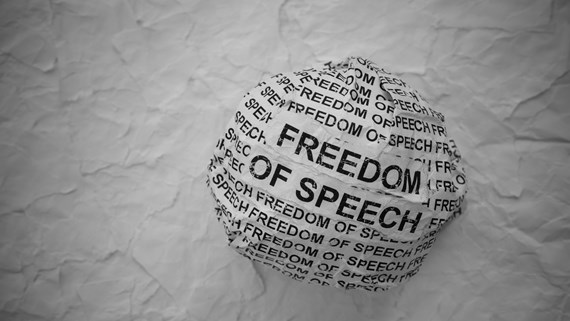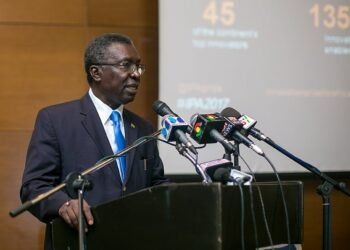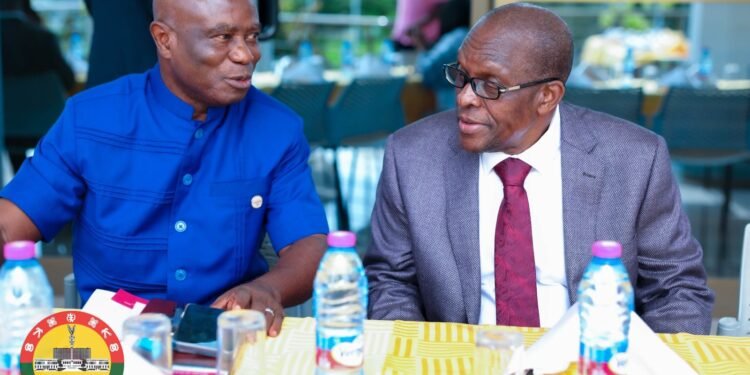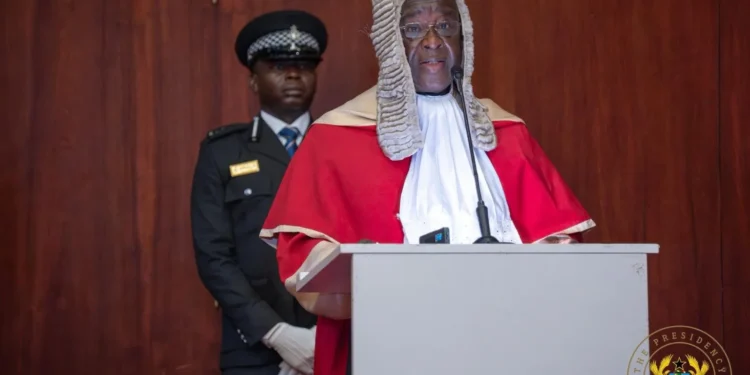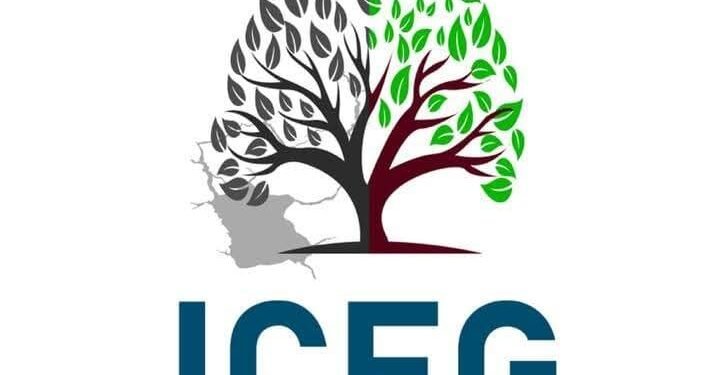Concerns over free speech have resurfaced following this dawn’s arrest of Sir-Obama, editor of Pokuase Mail, in circumstances yet to be fully clarified.
Legal expert and Democracy and Development Fellow at CDD-Ghana, Prof. Stephen Kwaku Asare, has warned that the incident underscores a recurring challenge for the nation — balancing the protection of constitutional freedoms with the need to maintain public order.
Reflecting on the matter, Prof. Asare recalled words expressed by Justice Tanko Amadu in a past case involving Kevin Taylor, noting their renewed relevance.
The Justice had emphasized that adherence to due process and respect for the court are fundamental pillars of the nation’s legal system, both of which safeguard the rights of all individuals, including those accused of contempt.
“The principles that Justice Tanko enunciated in the Taylor case apply with equal, if not greater, force to the conduct of our police and national security agencies when confronted with speech that is offensive, unsettling, or injurious to sensibilities.
“The mode of arrest is not a mere procedural nicety; it is a substantive guarantee that the coercive powers of the State are exercised only within the guardrails of law.”
Prof. Stephen Kwaku Asare

He stressed that in situations where there is no likelihood of escape, tampering with evidence, or an immediate threat to public safety, authorities should opt to invite individuals for questioning instead of conducting aggressive dawn raids as if targeting dangerous criminals.
Such forceful measures, especially in matters involving speech, can erode public trust in security agencies and foster perceptions of intimidation rather than justice.
Prof. Asare also highlighted that while anyone may occasionally misuse power, judges — and by extension, those in authority — have more opportunities to do so, and even a single unfair act can tarnish the reputation of an entire institution. “In each case, the percentage is tiny, but the harm is done just the same.”
National Security Reputation at Risk Amid Free Speech Concerns
Prof. Kwaku Asare further emphasized that the same principle that applies to judges applies even more to the police and national security services — a single reckless operation, such as a dawn raid without clear justification, can severely damage the reputation of the entire institution.
In today’s digital age, where images and videos spread rapidly, the fallout from a poorly planned action can be swift and far-reaching.
Even if such incidents are rare, the harm they inflict on public confidence can be profound and enduring, potentially undoing years of effort invested in building trust with communities.

“In a constitutional order, arrest is not the reflexive answer to unpopular speech. The due process protections, the presumption of innocence, and the right to liberty require that security agencies act with restraint, precision, and proportionality.
“Enforcement should target only speech that is truly hateful, threatening, or inciting unlawful acts — speech that poses a tangible risk to the safety of persons or the security of the State.”
Prof. Stephen Kwaku Asare
He noted that disrespectful or crude remarks, no matter how distasteful, should instead be countered with rebuttal, civic education, or social disapproval.
The legal expert expressed concern over the growing erosion of civility in public discourse, noting that too many individuals now resort to unnecessary insults as their primary means of engagement — often because such behavior appears to yield attention, notoriety, or even political advantage.
He pointed out that this shift has displaced the substantive and thought-provoking debates once common on platforms like Okyeame and Ghanaweb, replacing them with loud but empty rhetoric.

This pattern, he warned, not only diminishes the quality of national dialogue but also risks creating a dangerous incentive system where abrasive language becomes the quickest path to public relevance.
“Hateful speech, especially when aimed at individuals or groups with hostility and prejudice, adds little of value to public discourse. It corrodes trust, deepens divisions, and distracts from the constructive exchange of ideas that strengthens democratic governance.”
Prof. Stephen Kwaku Asare
He noted that the President, as both a long-time advocate for free speech and a media professional, has repeatedly emphasized the importance of protecting open expression.
Prof. Asare urged National Security to “take a cue from His Excellency”, stressing that the State’s authority should serve as a safeguard for lawful speech — even when such speech is uncomfortable — rather than as a tool for retaliating against words that cause offence.
He ended with a call to action, urging society to reject those who rely solely on insults while upholding both the dignity of individuals and the integrity of national discourse.
He emphasized that security agencies should serve as protectors of constitutional order, stepping in only when speech crosses into criminal territory, and ensuring that any intervention follows procedures that safeguard the rights of all, even the most outspoken critics. “That is the true measure of a free society.”

